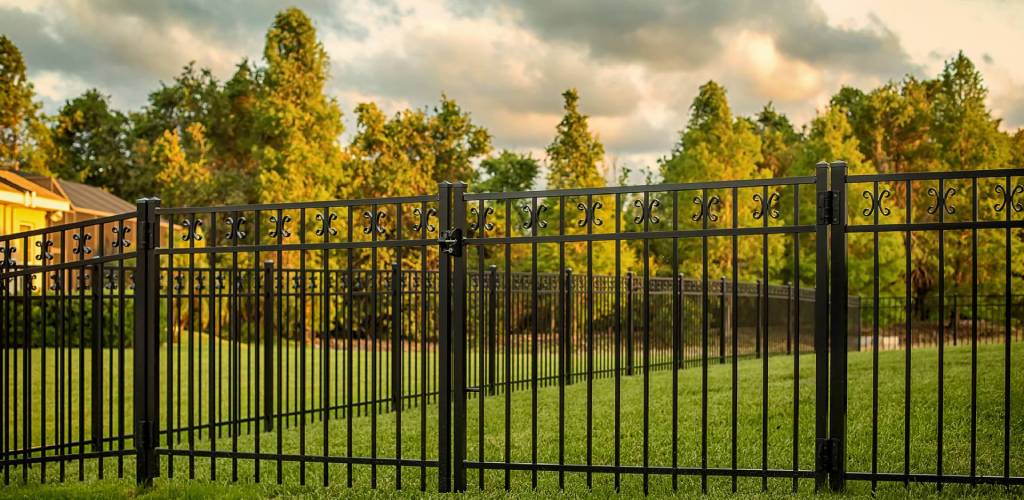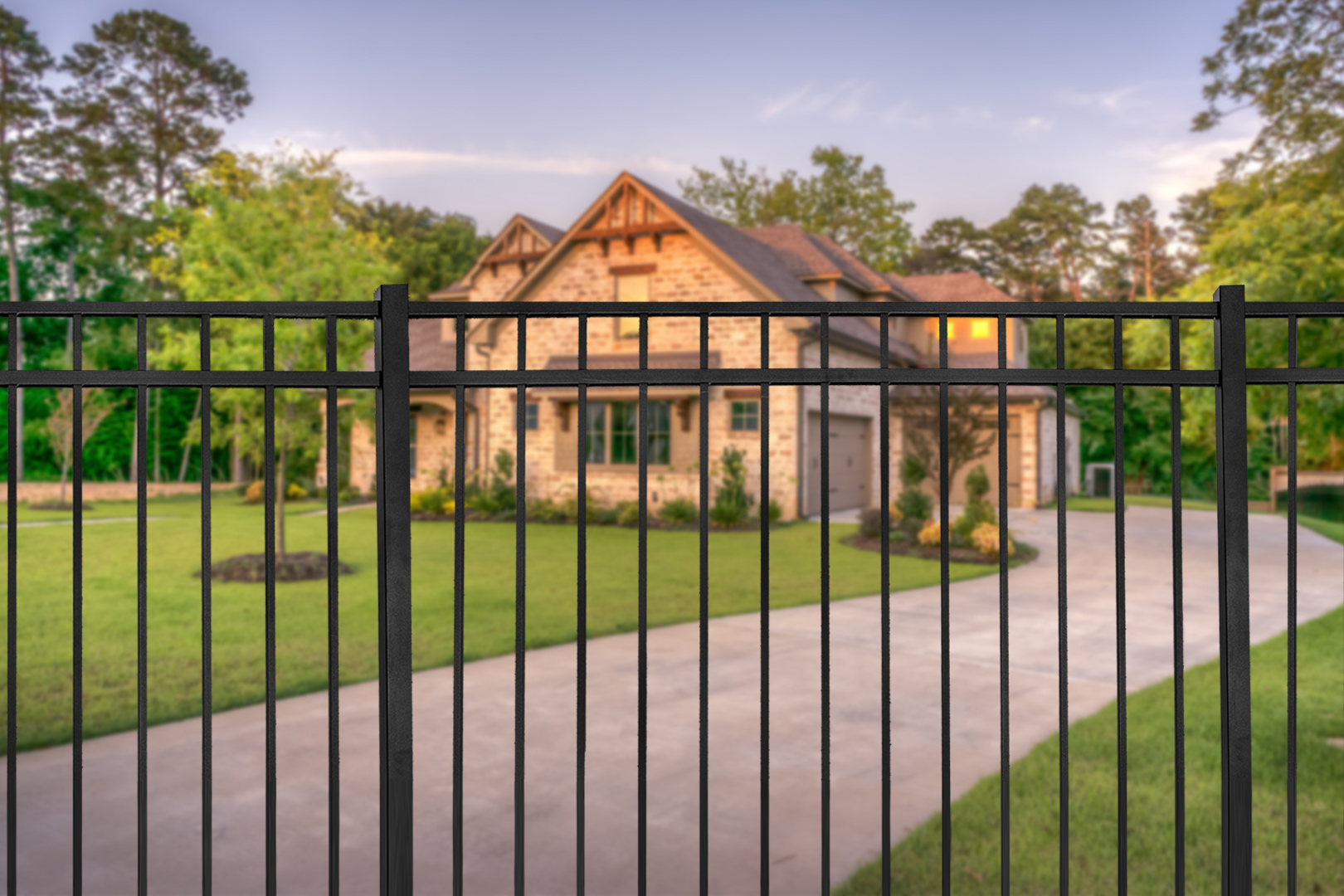All Categories
Featured
One of the most usual inquiries homeowners ask when taking into consideration a fence installment is: Exactly how much does it set you back? The overall price depends on a number of factors, including the material you pick, the dimension of your property, the design of fencing, and labor costs.
![]()
Basic wood fencings, such as yearn or cedar, can set you back anywhere from $10 to $30 per direct foot. Cedar, for instance, sets you back $20 to $40 per straight foot, while much more ornamental options like redwood might cost even more.
Plastic Fence: Vinyl fencings are long lasting, low-maintenance, and use a clean, modern-day look. They are normally more costly in advance than wood. Expect to pay in between $20 and $40 per direct foot for vinyl. While the first cost is higher, vinyl fencings have a tendency to last much longer with minimal upkeep, making them an economical option in the lengthy run.
![]()
Chain Link Fence: If security is a top priority and you're looking for a budget-friendly choice, chain web link fencings are an outstanding option. They are usually valued between $10 and $20 per linear foot. Chain link fencings don't provide the exact same aesthetic charm as timber or vinyl yet provide strong defense and are reduced upkeep.
Wrought Iron Secure Fencing: Wrought iron fencings are classy, long lasting, and offer an included layer of security. They come at a higher expense, usually between $25 and $50 per linear foot. The elaborate designs and personalizations offered for functioned iron fences additionally include to the rate, making them one of the much more expensive alternatives.
Light Weight Aluminum Fence: Aluminum fences supply the look of functioned iron yet at an extra economical cost. Aluminum fences normally cost in between $20 and $30 per straight foot. They are lightweight, durable, and resistant to rust, making them an appealing alternative for property owners looking for a maintenance-free fence.
For complex or personalized fence designs, anticipate greater installment costs. Personalized entrances, distinct materials, or attractive aspects can include in the intricacy and cost of the installment.
![]()
Allows: Many local federal governments need a permit to mount a fence, especially if it surpasses a particular elevation or is placed near residential or commercial property lines. Allow fees differ by place but typically vary from $20 to $200. Make sure to talk to your regional government to recognize any kind of specific needs in your area.
Entrance Installment: If your fence includes a gate, there will be an added price. Gateway installment commonly ranges from $100 to $500, depending upon the product and size of eviction.
Landscaping or Prep Job: If your building needs additional preparation work, such as tree removal, grading, or getting rid of brush, this will certainly include to the total cost. The amount of prep work needed can differ depending upon the problem of your backyard, and prices for this can range from a few hundred dollars to over $1,000.
Wood Fencing: $1,500 to $3,000. Plastic Fencing: $2,000 to $4,000. Chain Link Secure Fencing: $1,000 to $2,500. Wrought Iron Secure Fencing: $3,000 to $7,000. Light weight aluminum Secure fencing: $2,000 to $4,000. Remember these are ordinary estimates. The real price may vary depending upon your details needs, and it's always an excellent concept to obtain quotes from numerous contractors prior to making a decision.
Conclusion. The price of mounting a fencing on a domestic home can vary from a few hundred dollars to several thousand, depending on the product, residential property size, and installment intricacy. By recognizing the aspects that affect the price, you can make a notified choice and select a fence that fulfills your demands and budget plan. Make certain to obtain multiple quotes from credible fencing installers to guarantee you're obtaining the most effective worth for your financial investment.

- Product Option. The product you choose for your fencing plays a major role in identifying the general price. Here's a break down of common fencing materials and their price varies:
Basic wood fencings, such as yearn or cedar, can set you back anywhere from $10 to $30 per direct foot. Cedar, for instance, sets you back $20 to $40 per straight foot, while much more ornamental options like redwood might cost even more.
Plastic Fence: Vinyl fencings are long lasting, low-maintenance, and use a clean, modern-day look. They are normally more costly in advance than wood. Expect to pay in between $20 and $40 per direct foot for vinyl. While the first cost is higher, vinyl fencings have a tendency to last much longer with minimal upkeep, making them an economical option in the lengthy run.

Chain Link Fence: If security is a top priority and you're looking for a budget-friendly choice, chain web link fencings are an outstanding option. They are usually valued between $10 and $20 per linear foot. Chain link fencings don't provide the exact same aesthetic charm as timber or vinyl yet provide strong defense and are reduced upkeep.
Wrought Iron Secure Fencing: Wrought iron fencings are classy, long lasting, and offer an included layer of security. They come at a higher expense, usually between $25 and $50 per linear foot. The elaborate designs and personalizations offered for functioned iron fences additionally include to the rate, making them one of the much more expensive alternatives.
Light Weight Aluminum Fence: Aluminum fences supply the look of functioned iron yet at an extra economical cost. Aluminum fences normally cost in between $20 and $30 per straight foot. They are lightweight, durable, and resistant to rust, making them an appealing alternative for property owners looking for a maintenance-free fence.
- Residential or commercial property Dimension. The size of your residential property directly affects the complete price of fencing installation. To establish the overall size of secure fencing required, determine the boundary of your home and increase that by the cost of the materials you've selected.
- Installation Complexity. The intricacy of the installment can additionally influence the overall expense. If your residential property has challenges, such as rocks or trees, the installment might come to be more complicated, boosting both labor prices and installation time.
For complex or personalized fence designs, anticipate greater installment costs. Personalized entrances, distinct materials, or attractive aspects can include in the intricacy and cost of the installment.
- Labor Prices. Labor costs can vary depending on your location, the experience of the fencing installer, and the time it takes to complete the setup. Labor expenses may boost if there are difficulties such as hard surface, old fencing elimination, or a demand for licenses.

- Added Costs. Along with product and labor costs, there might be added charges to think about:
Allows: Many local federal governments need a permit to mount a fence, especially if it surpasses a particular elevation or is placed near residential or commercial property lines. Allow fees differ by place but typically vary from $20 to $200. Make sure to talk to your regional government to recognize any kind of specific needs in your area.
Entrance Installment: If your fence includes a gate, there will be an added price. Gateway installment commonly ranges from $100 to $500, depending upon the product and size of eviction.
Landscaping or Prep Job: If your building needs additional preparation work, such as tree removal, grading, or getting rid of brush, this will certainly include to the total cost. The amount of prep work needed can differ depending upon the problem of your backyard, and prices for this can range from a few hundred dollars to over $1,000.
- Total Expense Estimate. The total price of installing a fence will rely on your product options, residential or commercial property dimension, and the intricacy of installation. For a tiny house, you could expect the adhering to:
Wood Fencing: $1,500 to $3,000. Plastic Fencing: $2,000 to $4,000. Chain Link Secure Fencing: $1,000 to $2,500. Wrought Iron Secure Fencing: $3,000 to $7,000. Light weight aluminum Secure fencing: $2,000 to $4,000. Remember these are ordinary estimates. The real price may vary depending upon your details needs, and it's always an excellent concept to obtain quotes from numerous contractors prior to making a decision.
Conclusion. The price of mounting a fencing on a domestic home can vary from a few hundred dollars to several thousand, depending on the product, residential property size, and installment intricacy. By recognizing the aspects that affect the price, you can make a notified choice and select a fence that fulfills your demands and budget plan. Make certain to obtain multiple quotes from credible fencing installers to guarantee you're obtaining the most effective worth for your financial investment.
Latest Posts
The Restroom Upgrade Every Detroit Home Is Worthy Of
Published Apr 19, 25
1 min read
Affordable Car Repair Services at Montclare Auto Repair - Don’t Wait, Act Now!
Published Apr 19, 25
2 min read
Unlock Exclusive Discounts with WyHy's Love My Lending institution Rewards
Published Apr 19, 25
1 min read
More
Latest Posts
The Restroom Upgrade Every Detroit Home Is Worthy Of
Published Apr 19, 25
1 min read
Affordable Car Repair Services at Montclare Auto Repair - Don’t Wait, Act Now!
Published Apr 19, 25
2 min read
Unlock Exclusive Discounts with WyHy's Love My Lending institution Rewards
Published Apr 19, 25
1 min read